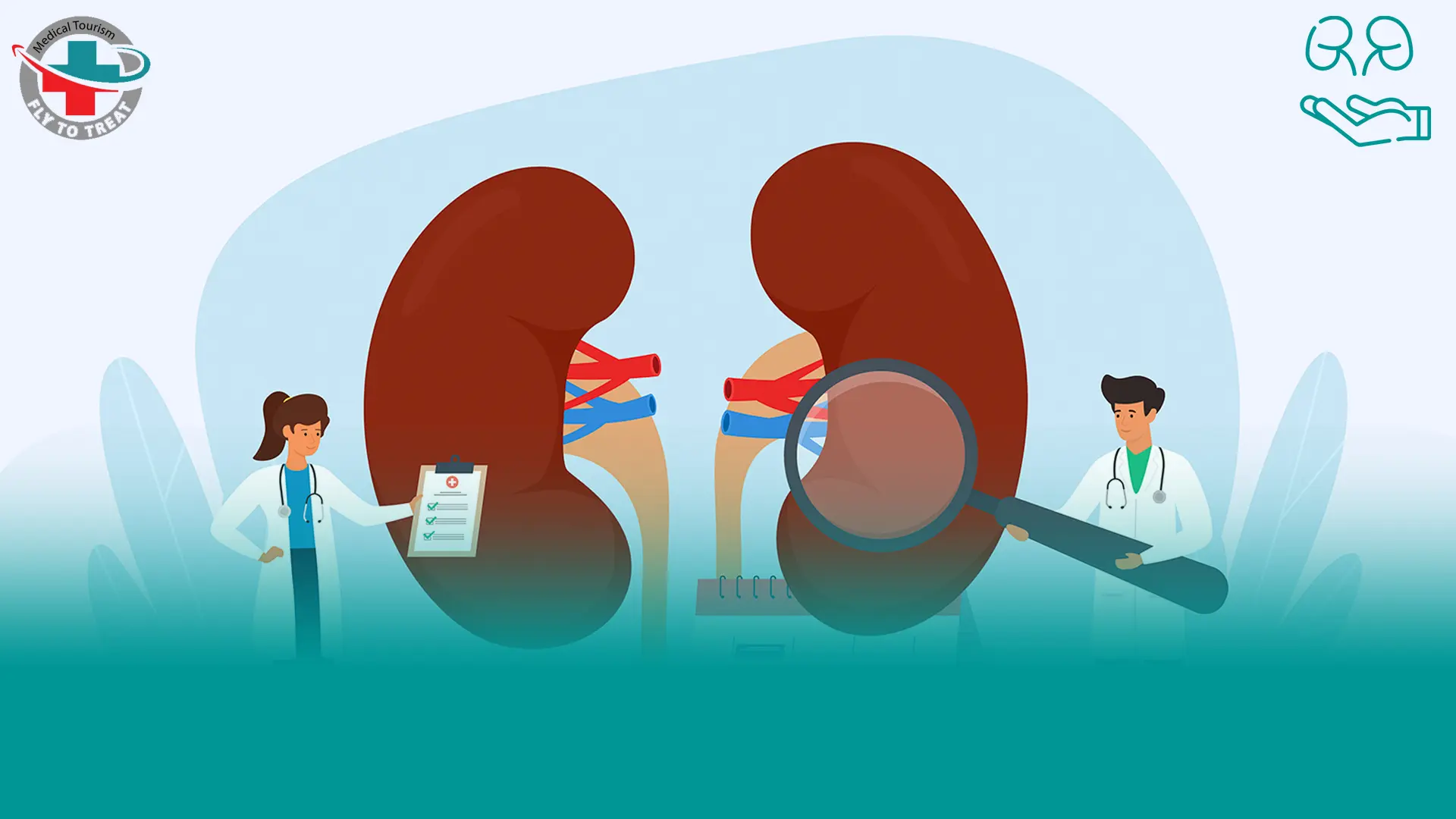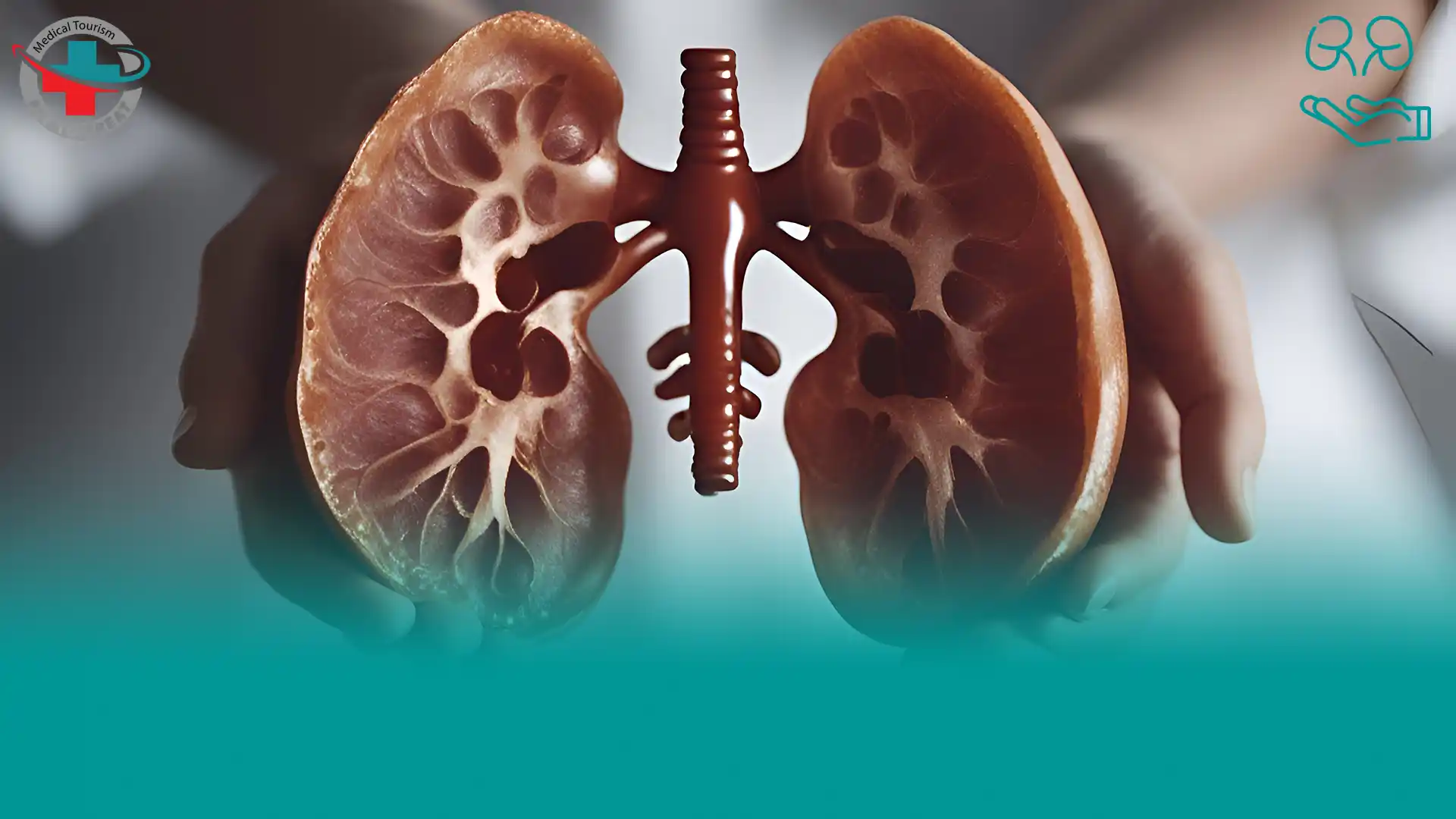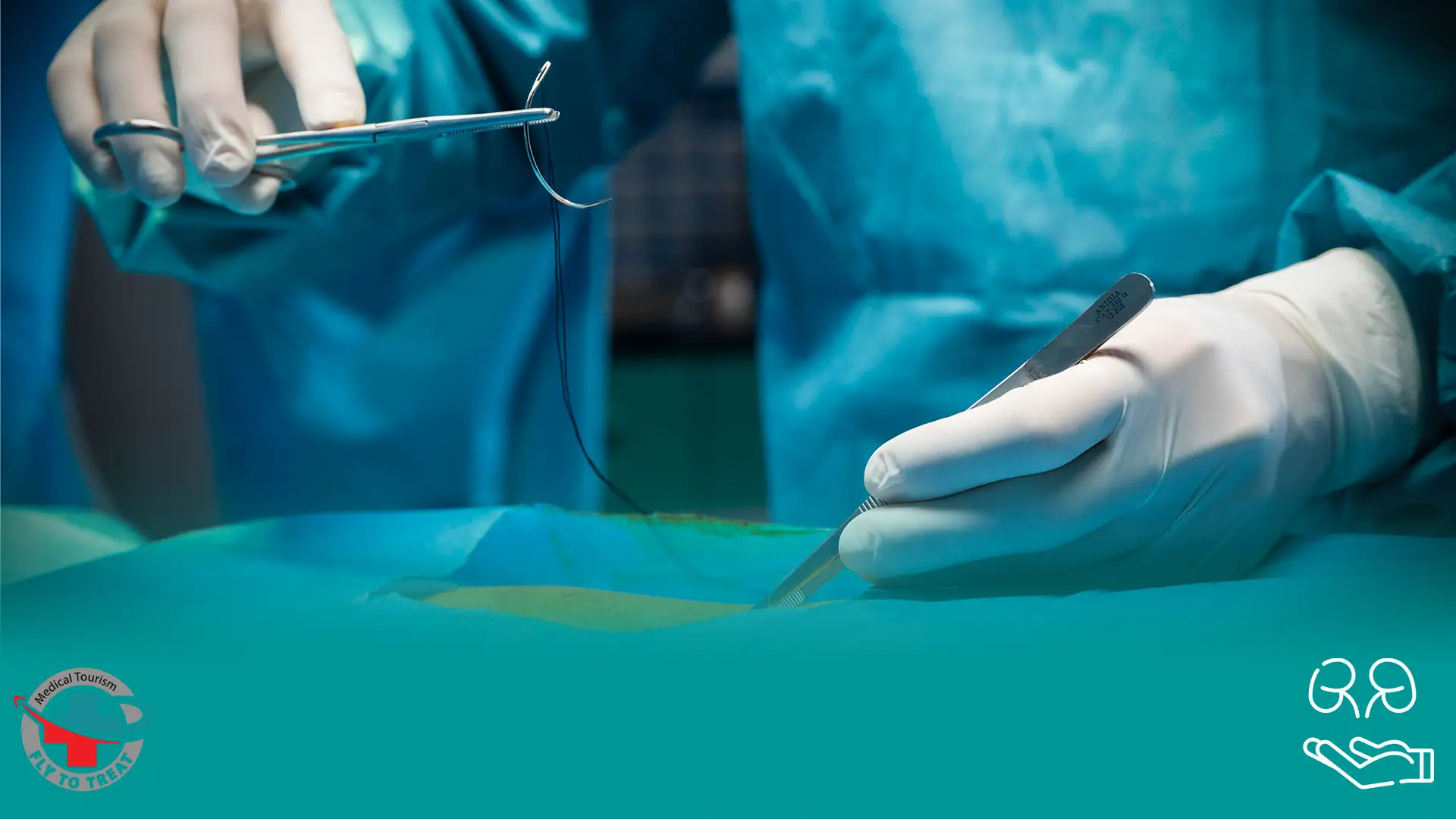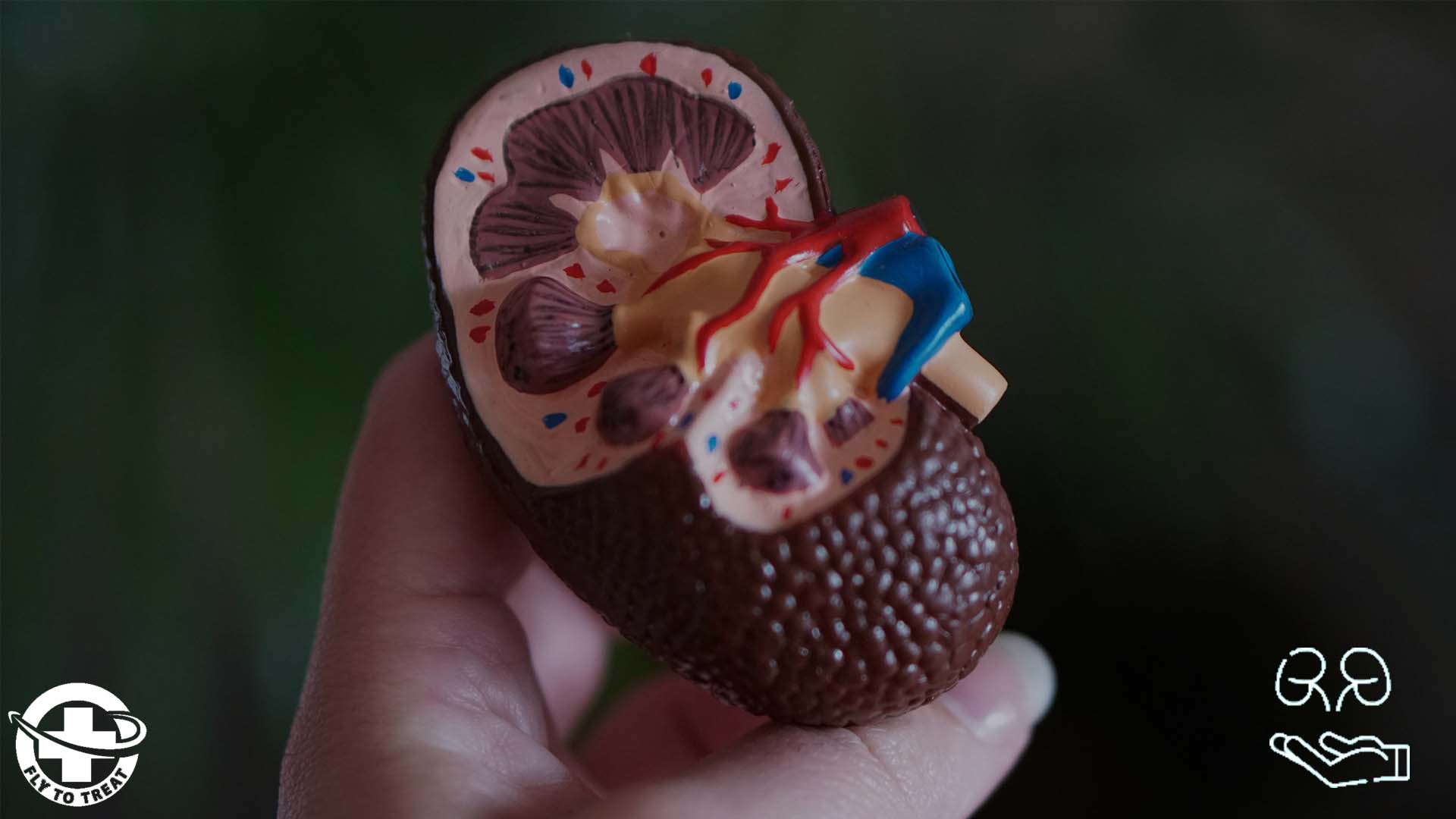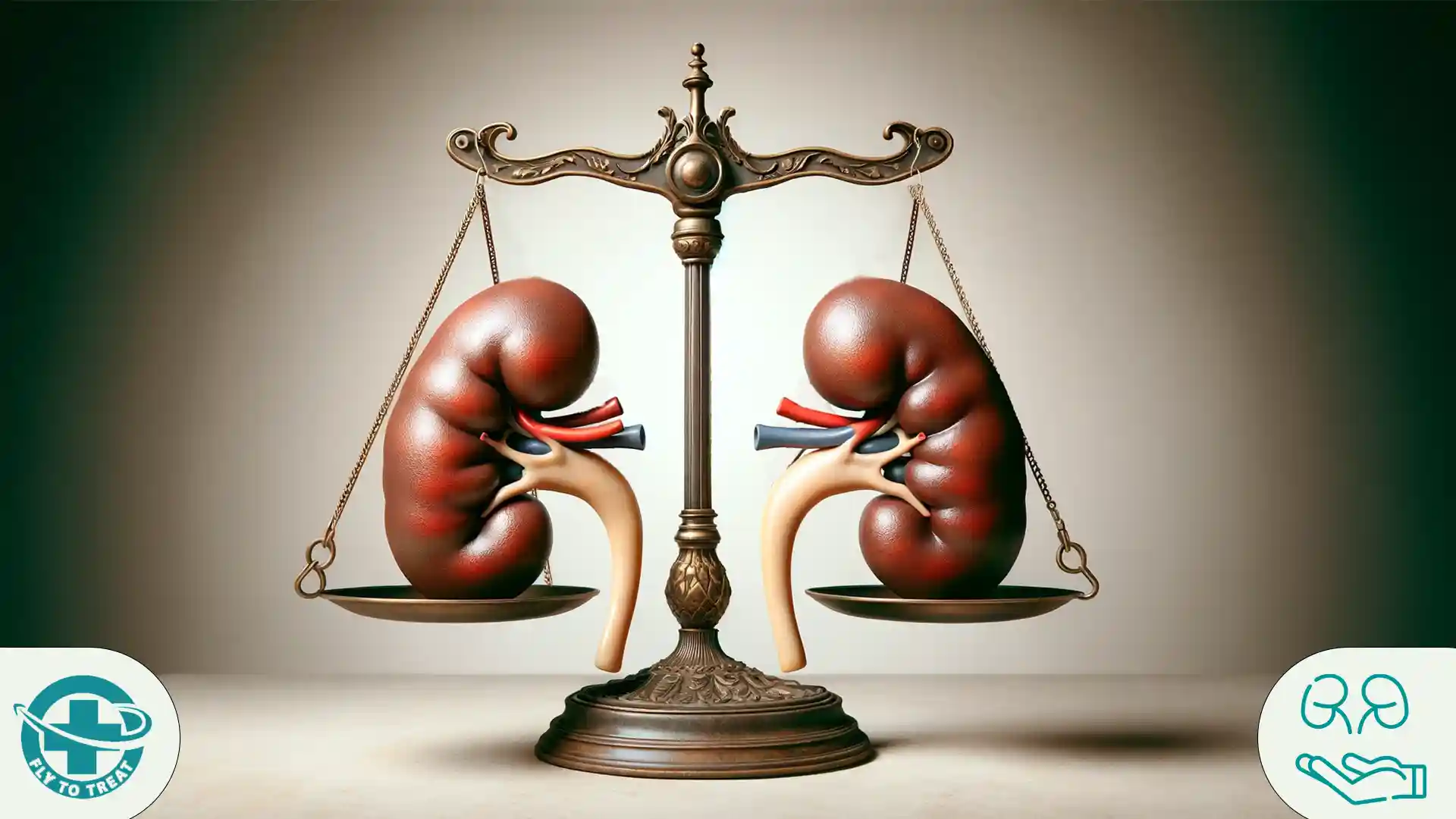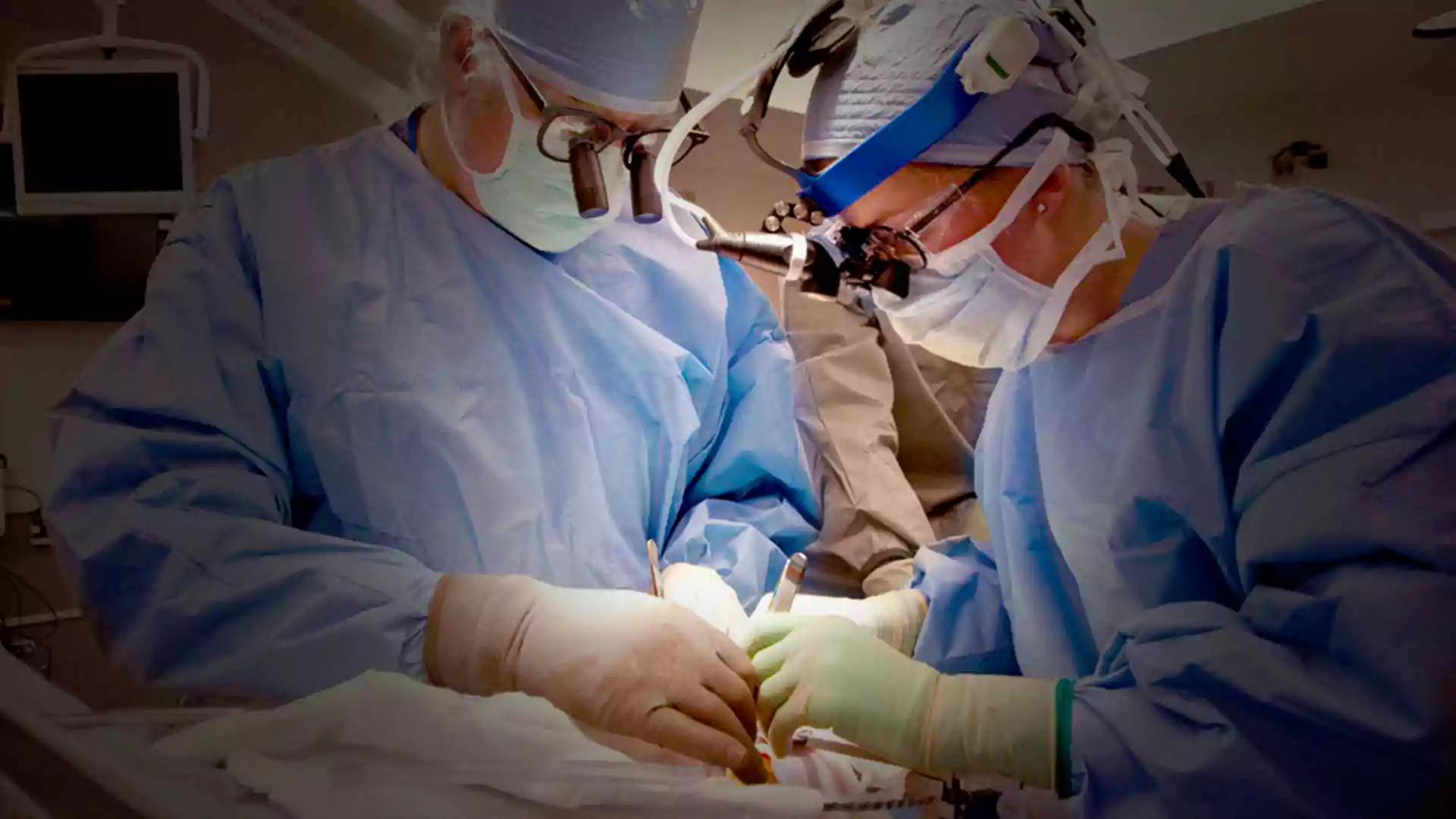
Kidney Transplant in Iran for Foreigners
Iran is now known as one of the most popular locations for kidney transplants because of its modern medical facilities, highly qualified personnel, and reasonably priced treatment alternatives.
When their kidneys fail, people frequently have to deal with dialysis, kidney transplants, or other medical procedures to preserve their health and quality of life. Fortunately, kidney transplants in Iran are now reliable and successful due to contemporary medical developments and a number of the world's best physicians, helping patients enjoy longer, healthier lives. Although there are restrictions for Iranian nationals, kidney transplants are also available to foreign patients, especially those from the Middle East, India, and Europe.
You may also want to read: “How Much Does a Kidney Transplant Cost in 2025?”
This article will tell you what you need to know about kidney transplants in Iran, including the regulations and essential considerations before traveling for treatment.
Table of Contents
- What are the Advantages of Doing Kidney Transplant in Iran?
- Is Kidney Transplant Legal in Iran?
- What is a Kidney Transplant Procedure in Iran?
- Is there a waiting list for organ transplants in Iran?
- Kidney Transplant Success Rate in Iran
- Best kidney transplant hospital in Iran
- How Much Does Kidney Transplant Surgery Cost in Iran?
What are the Advantages of Doing Kidney Transplant in Iran?
If you are going to find another country to do your kidney transplant, you should weigh the advantages and disadvantages of your medical travel. So many countries offer this procedure at a lower price, but it is your responsibility to search for them and find the top country with the best advantages. One of the advantages of doing a kidney transplant in Iran is the cost. Due to many reasons, such as local currency value, the cost of kidney transplants in Iran is at the lowest, so almost everybody can afford the treatment. It is worth mentioning that although the price is low due to some reasons, the quality is comparable with European and American countries.
Another point that might be interesting for everyone is that there are so many doctors in Iran who are doing kidney transplant surgeries every day and they are experts in this treatment field; therefore, you can make sure that you will be in good and expert hands. The success rate is a vital aspect of this procedure in Iran. The kidney transplant success rate in Iran is as high as possible, and patients can do their surgery with the least risk of rejection or possible complications. These reasons make Iran the best and cheapest country for a kidney transplant.
For short, we should say some of the advantages of kidney transplant in Iran are:
1. Lower cost
2. Expert surgeons
3. Modern equipments
4. High success rate
5. Low risks and complications
6. No need for familial connection between donor and recipient
Is Kidney Transplant Legal in Iran?
Kidney transplant is a legal medical treatment in Iran, just like other medical procedures that help people save their lives. However, some regulations should be considered. Most people want to know about the kidney transplant rules and the legal procedure for a kidney transplant in Iran. Kidney transplant in Iran is legal, but when it comes to living donors, if you are not Iranian, you must have your donor with you when you come to Iran for a kidney transplant. Let us elaborate on it more. According to kidney transplant law in Iran, Iranian people are not allowed to donate their kidneys to people from foreign countries. Therefore, those who want to have kidney transplants must have their donor with them. Donors and recipients need to be of the same nationality. Unlike most destinations for kidney transplant in the world, Iran does not require a familial connection between the kidney donor and the kidney recipient
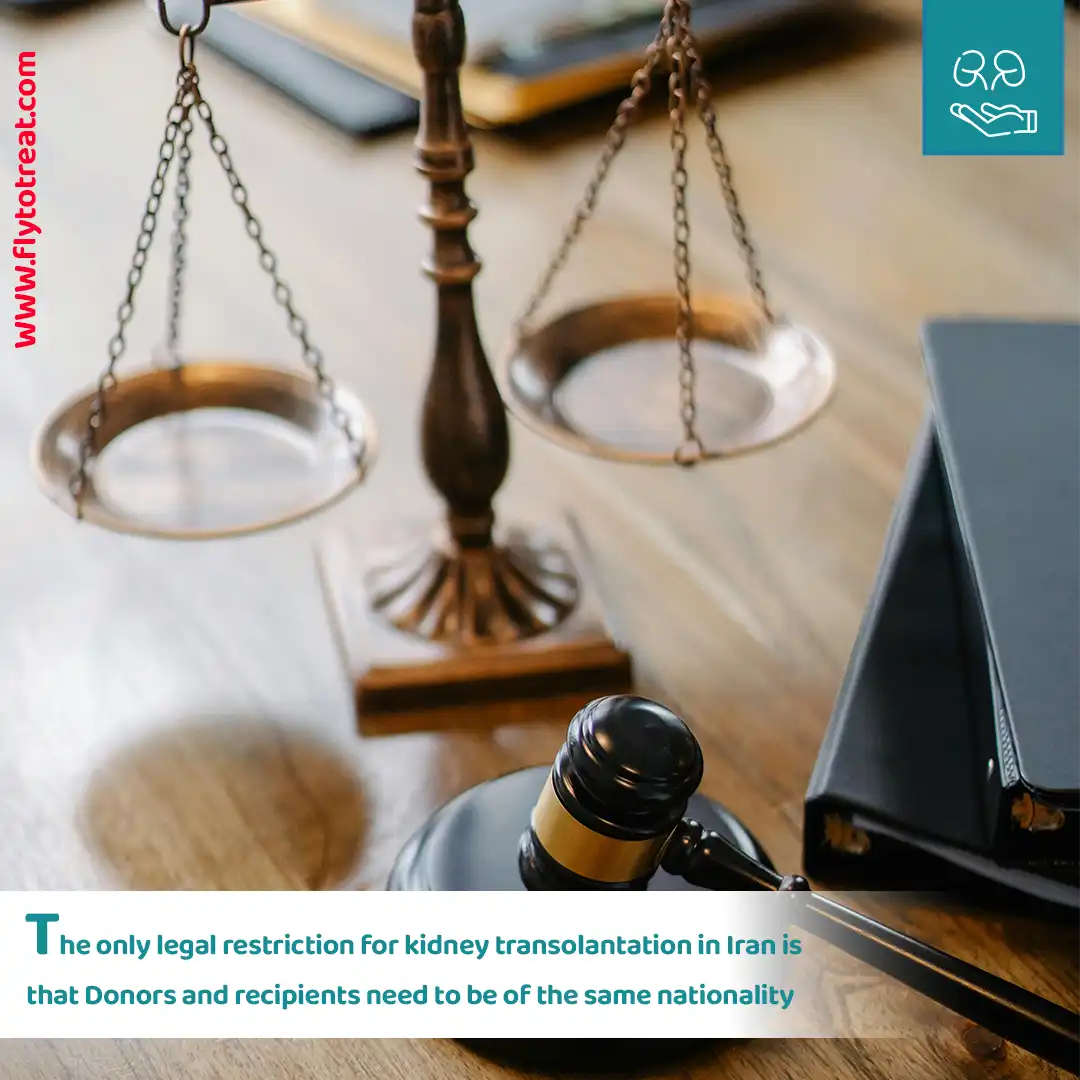
Who is Not Eligible for a Kidney Transplant in Iran?
As mentioned in the last paragraph, people who want a kidney transplant in Iran should find someone from their friends and family from their nationality and come to Iran for this procedure. The most important reason behind this is that patients and donors must be close in terms of blood group and cross-match. In addition to that, only friends and family members are ready to donate their kidneys and other people usually are not willing to do that.
You are responsible for finding a donor from your nationality, and some criteria should be in your mind. One is a blood type match, and another is a cross match. You should be matched with the donor you want to do a kidney transplant with, and there are some tests and scans that you should get to be qualified for this kind of surgery. People with some diseases like chronic hypertension, heart attack, and liver failure cannot be your donor.
What is a Kidney Transplant Procedure in Iran?
The “Iranian Model of Renal Transplantation” is a popular method for a kidney transplant. This method, which is also called “Living Unrelated Renal Donation” (LURD) makes kidney transplants possible in a shorter period. This method is done under the supervision of the Iranian Ministry of Health and it has been done since 1988, therefore, it is legal and safe. “Iran Kidney Foundation” is in contact with kidney-living donors who are healthy and willing to donate. This model of renal transplant has several advantages, including:
- Reduced waiting time so that patients can receive kidneys quicker
- Higher kidney transplant success rate when the kidney is received from a living donor
- The life span of the living-donor kidney is longer than a deceased one
- Comprehensive examination of the living donor’s medical history results in the higher quality of the donated kidney
- The cost of a kidney transplant is about one-seventh of the cost of dialysis. If we consider the Iranian model of renal transplant, the cost would be much lower.
- The high expertise of Iranian surgeons in the field of kidney transplant is one of the success keys
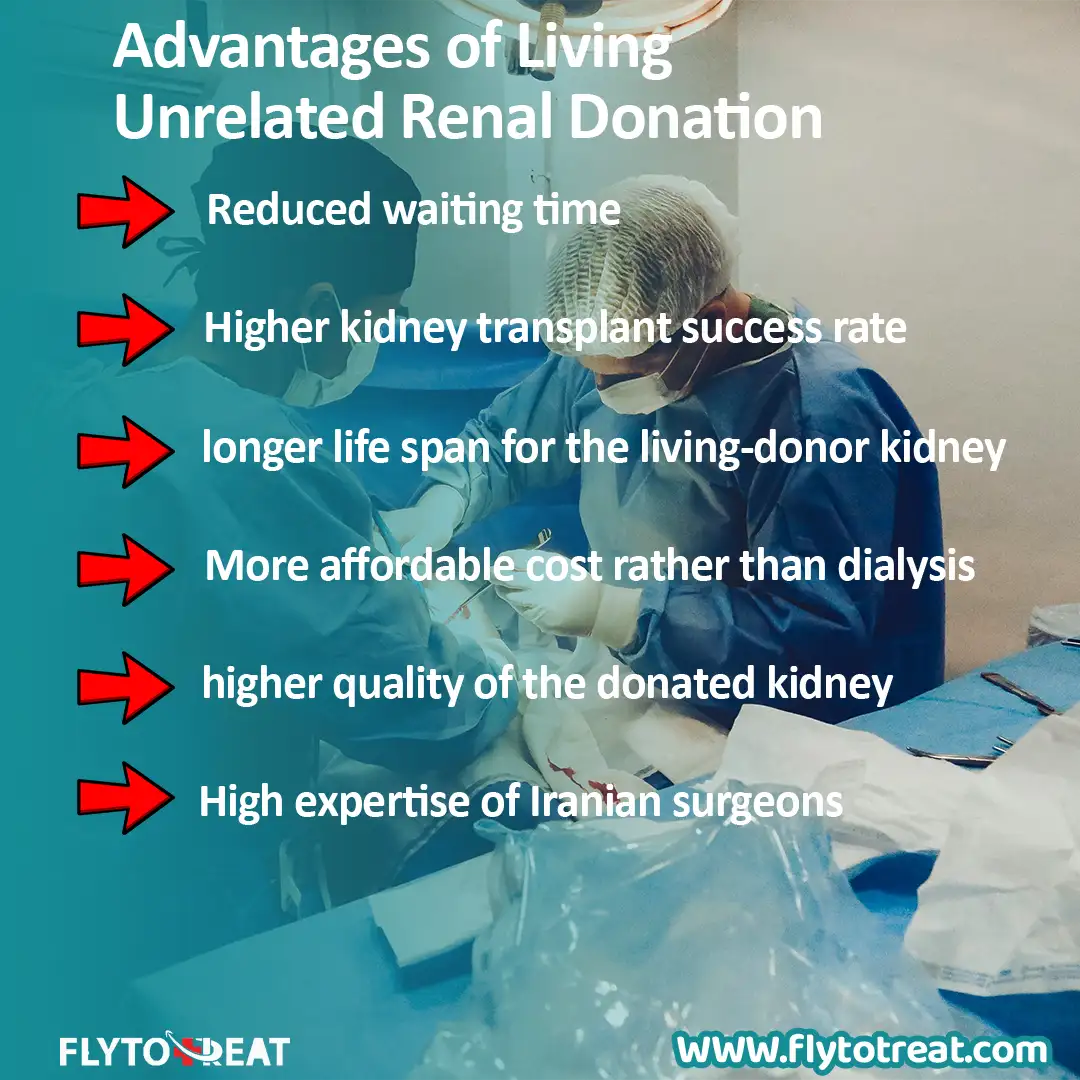
While the waiting time in other kidney transplant destinations is between 4 to 12 years, in Iran, the waiting time for a living donor is about 6 months, and for a deceased donor kidney is about 1 year. It should be noted that according to Iranian law, foreigners cannot receive kidneys from Iranian donors. Therefore, non-Iranian applicants should bring a donor from their nationality to Iran to have a transplant as soon as possible via the most professional Iranian surgeons in the advanced hospitals of Tehran. In this case, there is no waiting list for the operation so the kidney transplant process in Iran could be done immediately.
Preparation for a Kidney Transplant Surgery in Iran
Before doing surgery, you should be prepared for this procedure. First, you have a consultation with your doctor and transplant team to check all your medical records. If you have any questions about the procedures and hospitalization, you should ask your doctor during the consultation. After that, the team will explain all the procedures for a kidney transplant, and you should sign a consent form. In this form, you permit doctors and the healthcare team to do procedures, and you should read this consent form completely and know all the information clearly; after that, you can sign it. Patients who have done dialysis before this surgery should continue the dialysis process before the procedure. Some blood tests, CT scans, and MRIs should be done to find a perfect match and prepared for the surgery. If your donor is alive, you should not eat anything eight hours before surgery. Your doctor might prescribe sedation to calm you before the surgery. In case of other diseases, you should tell your doctors and medical team to be aware of them, so that they decide what kind of anesthesia they can use for you to do the surgery. Kidney transplants in Iran happen every day and there is nothing to be worried about since you are inexperienced and expert hands.
What to Expect During Kidney Transplant Surgery?
In general, a kidney transplant is performed according to some steps. At first, patients' clothes will be off, and they should put on a hospital gown. Some medical tools will be connected to your body to check your blood pressure, heart condition, and other vital aspects during the surgery. Urinary will be attached to your bladder. General anesthesia will be used for this surgery since patients should be completely unconscious. An anesthesiologist will monitor the blood pressure of the patient, heart rate, breaking issue, and oxygen level during surgery. After that, the surgeon makes an incision in the body of the patient, and doctors examine the donor kidney to find everything okay. Then, they will place the kidney in the body of the recipient. If the kidney is from the left side of the donor body, it will be placed on the right side of the recipient body, and vice versa. The reason behind this matter is that in this condition, the connection of the urethra to the bladder is much easier. In this part of the surgery, the quality of hospitals and their equippments are important. Fortunately, there are the best hospitals and facilities available in Iran and surgeries are done in the best situation. After the kidney is connected to the vein and renal artery, the blood flow will be checked to identify any problem, and if there is bleeding, the surgeons will find and fix it. Then the patient's incision will be closed, and he will be taken to the recovery room.
How Long Does a Kidney Transplant Surgery Take in Iran?
The duration of a kidney transplant surgery can be different in each hospital with its different medical teams, but on average it can take about two to four hours.
After the procedures, the patient will be taken to a recovery room to be monitored by the medical team. Patients should stay at the hospital for some days since they will need to have some intensive care, but after that, once patients recover completely, they will be discharged from the hospital. Patients who get a kidney from a living donor can produce urine right after the surgery. However patients who get their kidneys from dead bodies can not produce urine after surgery, so there is a need to do dialysis until the body can retrieve its normal functions. The health care team will check the urine level to determine if your kidneys are working properly, meanwhile, a urinary catheter will be attached to your bladder.
After surgery, your needed nutrients will be received through the IV line. Later on, you can receive your needed nutrients through a suitable diet for kidney transplant patients. The medical team will find out about the anti-rejection medicine side effects and their effectiveness. Anti-rejection drugs are essential to prevent kidney rejection, and you should be monitored by your doctor so that they find out whether they are effective or not. It would help if you get a routine blood test to find out about the condition of the new kidney and other organs in your body since it is vital to have regular check-ups. After surgery, you will shift to liquid or semi-solid food until you are ready to eat typical food. One day after surgery, patients can usually walk and move; if they are allowed to do that, they should move inside their room in the hospital and be active. Typically, you feel a lot of pain after surgery, so some painkillers will be prescribed. You cannot use drugs or medicines that can harm your body and increase the risk of rejection. The medical team will talk to you about how to take care of yourself and give you the required instructions.
For additional information about rejection of a kidney transplant, feel free to Click Here.
What is the Recovery Like After a Kidney Transplant in Iran?
After some days, you can go home and be discharged from the hospital, but it does not mean that you do not need any other care or recovery. It is critical to know that you cannot drive after this surgery. So, you should have someone to drive you home and to the doctor's office. It is necessary to visit your doctor and nephrologist regularly since there is a need to check the function of your kidney. If there is any risk related to kidney rejection, they can find it in the early stages and find a solution. Your sutures can be removed after some time. If you want any other medication or supplement, you should talk to your doctor and find the best one. After surgery, most patients find herbal or over-the-counter medicines to make them feel better. Still, you should take your medicines on time to prevent rejection. So, you must talk to your doctor about any other medication before using them. Personal hygiene after this surgery is essential since there is a risk of an infection at the incision site. So, you are responsible for taking care of your sutures and incisions area. Patients are not allowed to smoke. You should not be in touch with people with infectious diseases such as colds, influenza, etc. since your immune system is not working properly because of the anti-rejection drugs that suppress the system. Here you can read more about medicine to take after kidney transplant.
Is there a waiting list for organ transplants in Iran?
In Iran, unlike other destinations where waiting times can range from 8 months to over five years, foreigners encounter no waiting period for their renal transplant surgeries. However, it's essential to understand that Iranian law prohibits foreigners from receiving kidneys from Iranian donors. Consequently, non-Iranian applicants must arrange for a donor from their nationality to facilitate a swift transplant process through the expertise of top Iranian surgeons at advanced Tehran hospitals. This streamlined approach ensures timely access to life-saving procedures, bypassing lengthy waiting lists. By leveraging the proficiency of Iranian medical professionals and the absence of waiting times, individuals seeking renal transplants from abroad can swiftly navigate the process, offering hope and improved quality of life.
Kidney Transplant Success Rate in Iran
One of the critical aspects of a kidney transplant is its success rate. Patients want to know how many years after this surgery they can live without any problems. According to studies, the kidney transplant success rate in Iran is about 95% in one year. This rate is nearly 90 percent after five years which is the perfect success rate. People after this surgery can live for a long time, and the kidney transplant success rate by age can be different. The kidney transplant success rate can be lower in older patients compared to younger ones. It is essential to know about the success rate of the countries when it comes to kidney transplants. Before finding your destination country, you should do enough research about this treatment.
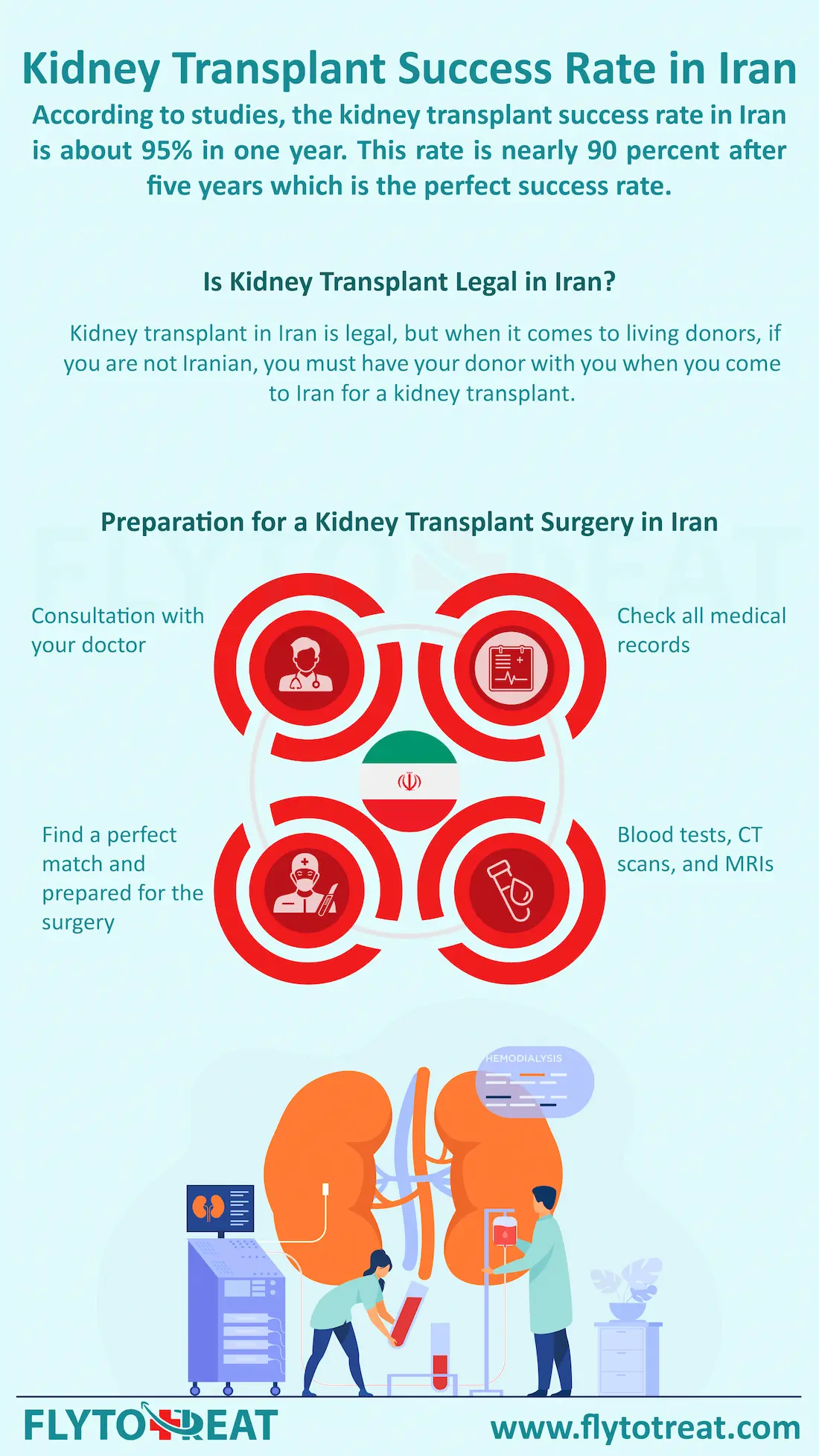
How can I Find the Best Doctor for a Kidney Transplant in Iran?
Sometimes it is difficult to find who is eligible to do a kidney transplant in Iran. But we are in Flytotreat to find the best doctors who are both certificated and highly skilled and have a lot of experience in this field of work. We will find and introduce them to you to help you have the transplant process in the shortest amount of time and with the highest success rate. We are committed to providing you the best transplant team and supporting you throughout the whole treatment process. A highly skilled medical team can help you to have the most convenient surgery.
Best kidney transplant hospital in Iran
Kidney transplant in Iran is accomplished only in state hospitals, and that is a policy to prevent organ trafficking and black-market activities. Some of Iran's most famous hospitals for kidney transplants include Farhikhtegan, Rasoul Akram, and Shahid Hasheminejad. Farhikhtegan Hospital is one of northwest Tehran's largest and most equipped hospitals. The Islamic Azad University owns it. Rasool Akram Hospital is the largest healthcare educational complex in West Tehran; this hospital is one of the academic centres of Iran University of Medical Sciences. Shahid Hasheminejad Hospital, or Dariani Hospital, is one of the multi-super speciality hospitals in Tehran. As a national centre for treating kidney diseases, this hospital is under the Iran University of Medical Sciences and was Iran's first and largest hemodialysis and kidney transplant centre. In 2008, Sh. Hasheminejad Hospital was ranked among the top 10 organizations in Iran.
We at Flytotreat work with the best kidney transplant hospitals in Iran and refer our dear patients to the most modern hospitals.
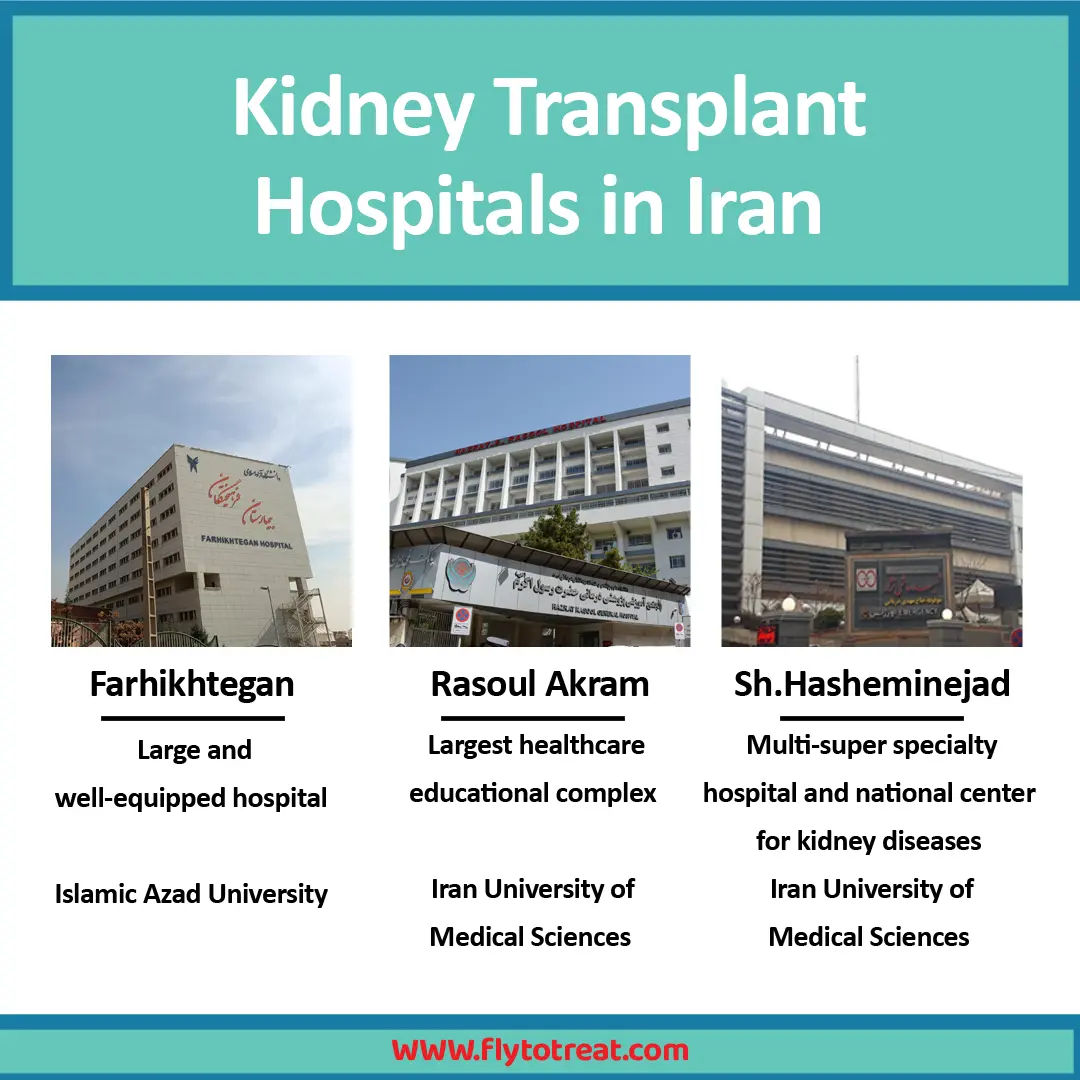
How Much Does Kidney Transplant Surgery Cost in Iran?
Another critical factor in the minds of patients is that they are doing their surgery in other countries to save money and find the best quality at the lowest price. Iran is one of the countries with the lowest price of medical treatment because of the local low currency value. In addition, the cost of living in Iran is low, therefore, you can make sure that you afford to live here for the duration of treatment. The average cost of a kidney transplant in Iran is about 12000$ to 15000$, which is the lowest among all the countries worldwide. So many patients are interested in doing kidney transplants in Iran to find the best quality.
Is a Kidney Transplant in Iran Worth It?
Transplantation is a necessary procedure that should be done for patients suffering from kidney failure who have been doing dialysis for some years. However finding the best country for this surgery is essential. Some patients decide to come to Iran to do this procedure and live a happy life for a long time. Kidney transplant costs in Iran are lower than in other countries, and it can persuade people who come to Iran for this surgery.
In addition, the quality of this surgery is as high as possible, comparable to modern European and American countries. This procedure is done for 40 or 50 years in Iran. So, surgeons are skillful in this field of work since they have done a lot of surgery. Another important reason why Iran is the best place for kidney transplants is that there is no waiting list. If you find your donor, you can come to Iran and do your surgery in the shortest time, and after recovery, you are allowed to go to your country without any problem.
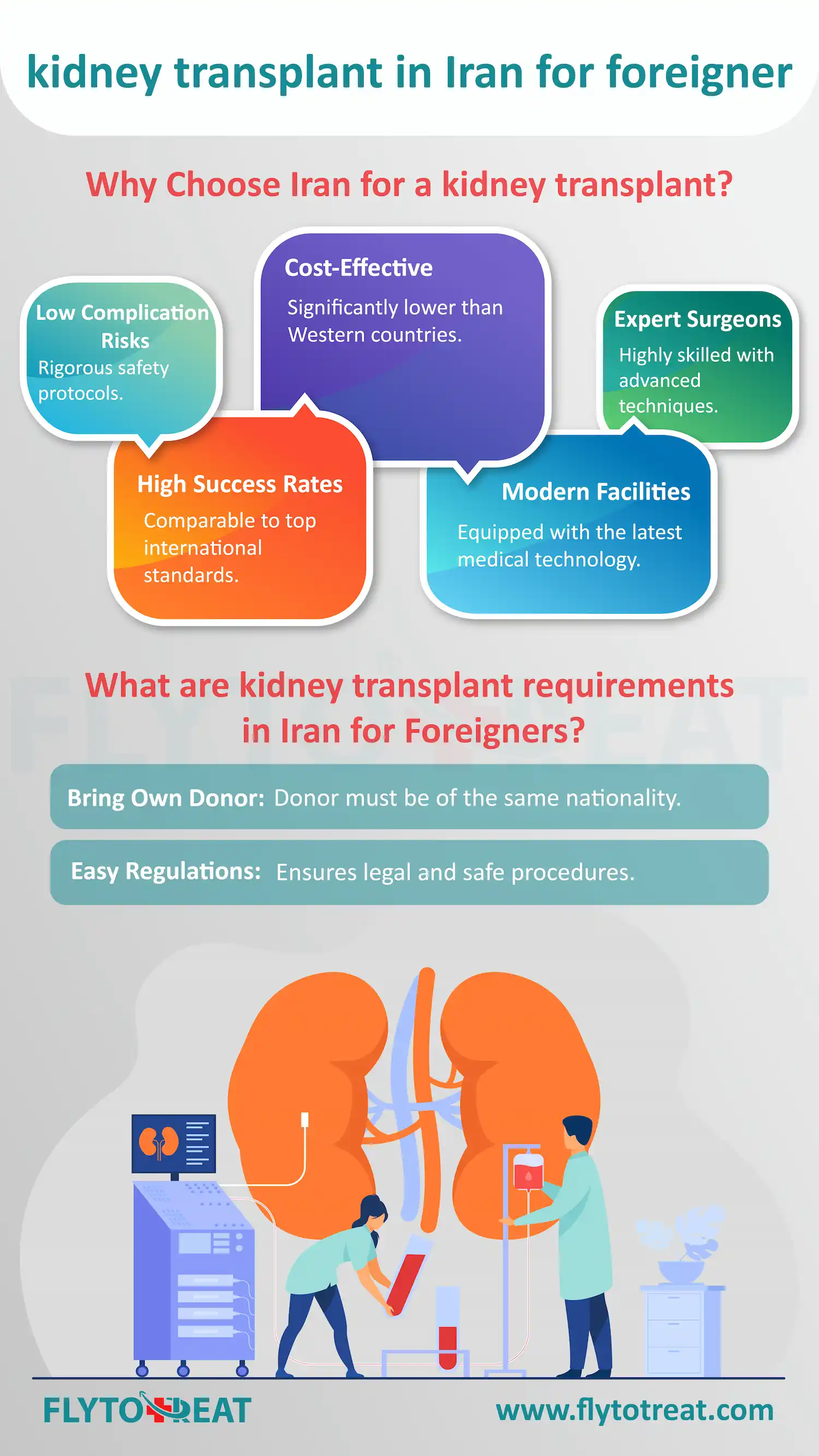
How to Register for a Kidney Transplant in Iran?
Contact FlytoTreat through the website or social media if you have already found your donor. We are here to help and show you how to register for a kidney transplant and other necessary procedures. we will send your medical records to an experienced doctor to analyze your condition, and after that, you can come to Iran for a kidney transplant surgery. Click Here
Conclusion
Patients looking for high-quality, affordable care may find kidney transplantation in Iran appealing. Iran has become a leader in kidney transplant treatments thanks to its state-of-the-art medical facilities, talented surgeons, and supportive legal environment. The nation is a competitive alternative for medical tourism due to its comparatively low cost, high success rates, and availability of living donor choices.
The Iranian kidney transplant model guarantees a quick waiting period and a low risk of treatment, even though patients are required to bring a donor from the same country. Iran offers people thinking about having this life-altering procedure the chance to get top-notch care at a fraction of the price of other nations.
MEDICALLY REVIEWED BY: Dr. Ali Bazazi
AUTHOR: Leila Nazari
27 June 2023 - Updated At: 18 February 2025
Related Articles
Yes i sale my kidney
Can i get a donor from different nationality. Examample, i am Malaysian, can get a phillipino national as donor.
if you want to undergo a kidney transplant in iran, you need a donor from your own nationality
Unfortunately no!
due to international rules, the donor and recepient should have same nationalities
I want sale my kidney
Contact me or msg my whatsapp I donete kidney
Hi, we don't buy kidney
Hi. Thanks for your comment but we don't buy kidneys
Contact me or msg my whatsapp I donete kidney
I am interested kidney donete
I am interested kidney donete
Hi thank you for your comment but we don't buy kidneys
Comment







